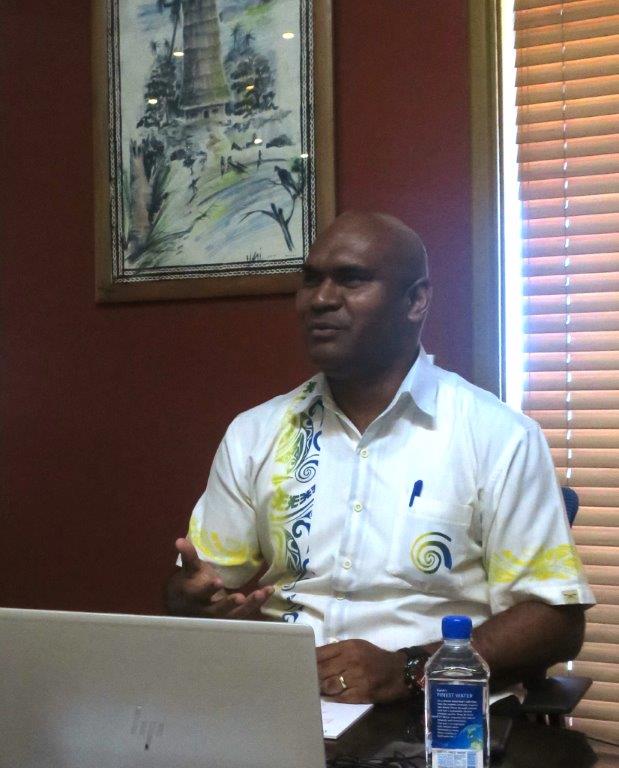
Select Page
The Asian Productivity Organization (APO) is working to assist the Republic of Fiji in developing a national productivity master plan to drive long-term socioeconomic gains. In collaboration with the National Training and Productivity Center (NTPC) and Ministry of Employment, Productivity and Industrial Relations, the APO is conducting a policy consultancy project to develop the master plan to meet policy and institutional prerequisites of a well-functioning productivity movement at national level.

APO Alternate Director for Fiji and NTPC Director Dr. Isimeli Waibuta Tagicakiverata speaking at the opening session of the APO’s policy consultancy project in Suva, 17 February 2019.
Economic growth in Fiji has been inclusive, leaving extreme poverty rare, although its growth rate remains low. The shift in the economic structure over the past four and a half decades toward more value-added activities has left productivity in the industry and service sectors unaffected. Labor productivity growth since the early 1990s has hovered at around 1.15%. After independence, Fiji’s total factor productivity has shown zero growth based on a recent estimate. Unleashing its potential and achieving the goal of doubling per capita income by 2035 will require annual GDP growth of 5%. Fiji therefore needs to mainstream productivity in its growth strategy.
The development of Fiji’s National Productivity Master Plan will comprise two stages. In the first stage, a diagnostic exercise including situational analysis will identify the key productivity-related issues and challenges facing the country and make preliminary recommendations to address them. In the second stage, the master plan will be drafted based on the findings in the first.
During the in-country diagnostic exercise from 17 February to 5 March 2019, APO-assigned resource persons and an APO program officer will conduct research and analysis, consult key stakeholders in the country, and do benchmarking against international best practices.
Fiji’s National Productivity Master Plan will be developed based on the findings and proposed recommendations as well as other relevant information, including review of the current situation, overall objectives and goals, key productivity levers, and strategies for the future. A presentation on the preliminary findings to 21 key stakeholders, including representatives of the Prime Minister’s Office, will be made on 5 March, and their feedback will be used to finalize the master plan.
Launching the project in Suva, APO Alternate Director for Fiji and NTPC Director Dr. Isimeli Waibuta Tagicakiverata said that a comprehensive productivity policy was needed to support the long-term goal of becoming a high-income country by 2035. He appreciated APO efforts to help to achieve that goal through productivity-driven growth. He pointed out that the master plan would serve as guidance in meeting institutional prerequisites for boosting economic productivity and improving competitiveness in addition to mainstreaming productivity in development policies.
The APO expects to present the master plan to key policymakers by mid-June 2019 for final modification and adoption by the country or for use as a draft to develop the official Fijian National Productivity Master Plan.